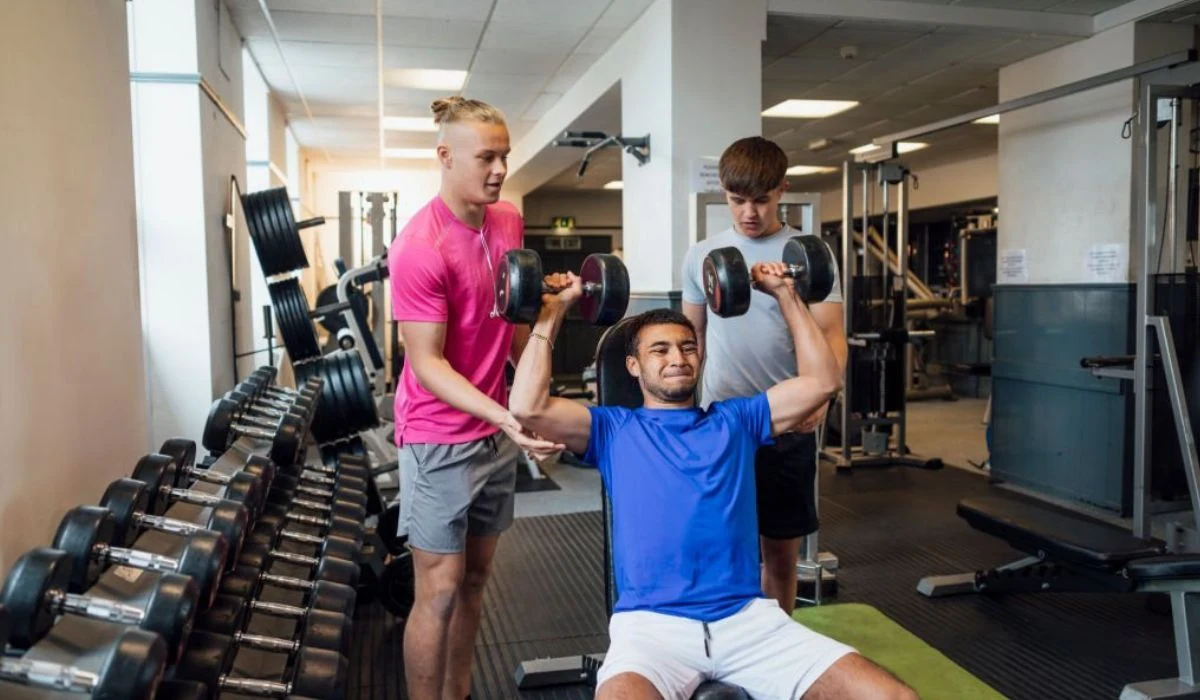Coaches and trainers know the impact of emotions and psychological factors on athletes when they compete. Factors like low self-esteem, motivation, and confidence can hamper the performance of athletes or a team. Therefore, sports psychology helps to improve athletic performance by enhancing the physical and mental well-being of athletes through the application of psychology to sports.
What Is Sport Psychology?

This is a branch of psychology that helps athletes and individuals build mental toughness to optimize excellence. It focuses on how they think, learn, focus, what they do, and experience during practice or events. It teaches coaches ways in which they can help their athletes groom mental skills such as focus, confidence, self-awareness, stress and energy management, and visualization, to enhance their performance.
Through sport psychology, athletes can achieve a healthy mental well-being, which gives room for excellence. Sport psychology exists for coaches to understand the needs and goals of each individual.
Significance Of Sport Psychology
When athletes compete in events, they are usually under extreme pressure and emotional stress from coaches and team members. This creates anxiety and an immense desire to perform well, which often distracts them during their performance and may likely lead to poor mental health. A key significance of sports psychology is that it creates an avenue that grooms athletes to compete in stressful conditions through mental fitness.
The following are some of its importance to coaches and trainers:
- Coaches are fully aware of each athlete’s physical abilities and mental weakness, helping them find ways of improving individual mental balance
- Trainers teach individuals ways of reducing anxiety through stress management exercises
- Athletes are able to increase their drive and set high goals when they maintain healthy mental fitness
- Athletes attain healthier perspectives of themselves and awareness of their strengths and weaknesses
- Improves the overall performance of athletes and teams
- Teach cognitive strategies that help to improve experience, performance, and wellness in sports and exercise over time
Focus Points In Sport Psychology
These are key factors that affect the performance of a team or athlete on and off the field. They include motivation, sportsmanship, attention and focus, setting goals, visualization, and burnout.
Motivation
When playing sports, athletes need to be motivated and determined to get through a tough game. Sport psychology enables coaches to find effective strategies of increasing motivation such as praise, positive feedback, and moral support.
Sportsmanship
This plays an important role in the success of a team. In sports, coaches need to teach their athletes the value of teamwork and collaboration through team-focused strategies and goals focused on improving the performance of the team. During exercise, group bonding allows for synergy and improvement of everyone.
Attention And Focus
Athletes learn ways of attaining a high degree of focus amidst the distractions when they compete. By maintaining a positive attitude through self-talk, they can respond to signals appropriately.
Goal Setting
Coaches help athletes set achievable goals to improve their performance or groom their mental well-being. These goals can be set to focus on strategies or techniques for winning. They have to be challenging and measurable. Setting an attainable goal for teams allows for team bonding and overall performance.
Visualization
Athletes or individuals can use mental images to practice movements related to actions, picture familiar patterns in performance, and recreate past events to correct their mistakes. Imagery improves the mental wellness of an athlete.
High Risk Of Burnout
Burnouts are typical among athletes who compete professionally or in highly competitive sports. This is a result of the high stress and pressure placed on them to win. With it taking a toll on them and hampering their performance, coaches need to increase the awareness of burnout among athletes. They need to know that it is okay for them to be tired or rest.
To coaches and trainers, social psychology is a safe haven meant to help athletes and individuals grow mentally, emotionally, and physically.
Read More: Team Sports Psychology: Winning Strategies and Mental Strength
Our recommendations are rooted in genuine belief in the benefits of the products bring to users. When you purchase through our links, we may earn a commission, supporting our testing and development without adding any cost for you. Learn more.

Dr. David G Kiely is a distinguished Medical Reviewer and former General Medicine Consultant with a wealth of experience in the field. Dr. Kiely’s notable career as a General Medicine Consultant highlights his significant contributions to the medical field.


